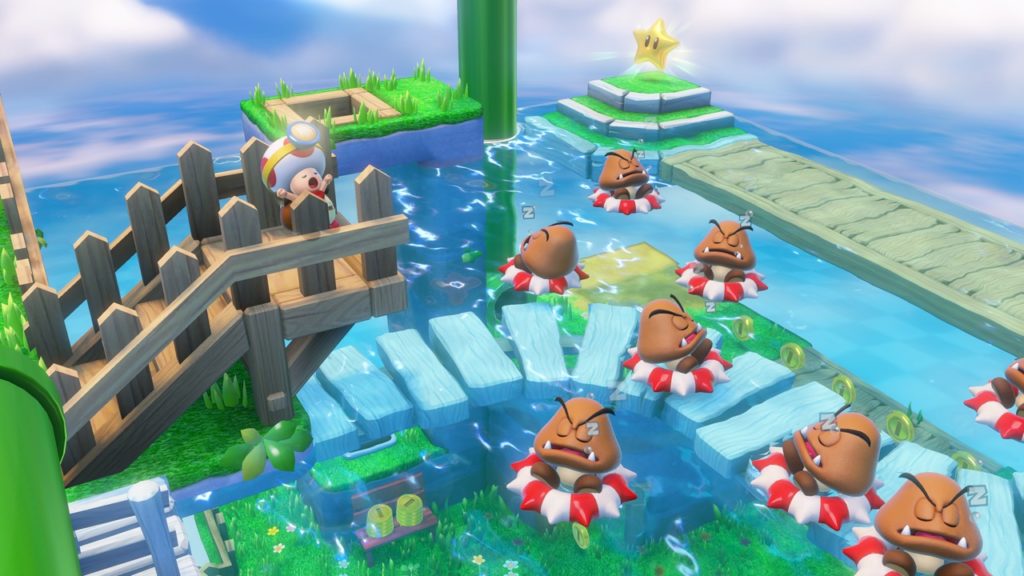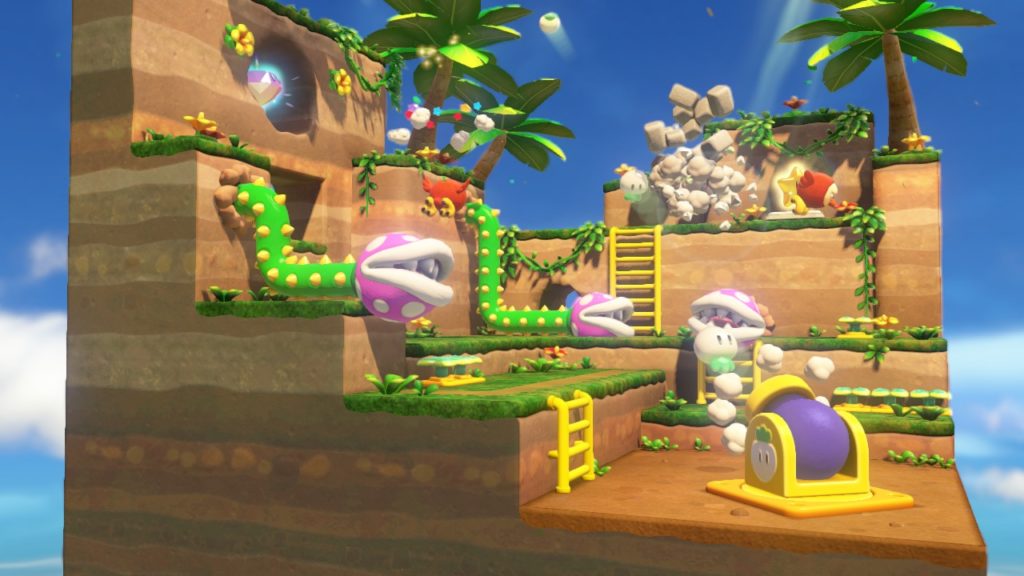Sometimes, you just need a game that’s wholly derivative…of a different time period. The past can be an inexhaustible well of learning, really, and so are games that evoke the times of old.
“Wisdom is with aged men,
With [g]long life is understanding.Jobs 12:12
![]() I’ve talked about puzzle games before, when they were a unique genre in themselves. Nowadays, since genres keep blending together so often (not a bad thing), the specialist puzzle-focused games have dropped off almost entirely. God forbid they’d get the treatment of a big budget release or anything – who wants to solve puzzles for hours and hours, exactly? I’m unsure how to categorize these things, exactly, because I know there’s a metric ton of puzzle platformers on Steam by indie developers. But, I believe it comes from a certain laid back vibe they present. Sure, a lot of them implement time limits or competitive elements, but I like the ones that are relatively chill – it’s enough so that you can think straight, instead of fearing instant death from a mistake.
I’ve talked about puzzle games before, when they were a unique genre in themselves. Nowadays, since genres keep blending together so often (not a bad thing), the specialist puzzle-focused games have dropped off almost entirely. God forbid they’d get the treatment of a big budget release or anything – who wants to solve puzzles for hours and hours, exactly? I’m unsure how to categorize these things, exactly, because I know there’s a metric ton of puzzle platformers on Steam by indie developers. But, I believe it comes from a certain laid back vibe they present. Sure, a lot of them implement time limits or competitive elements, but I like the ones that are relatively chill – it’s enough so that you can think straight, instead of fearing instant death from a mistake.
Enter Captain Toad: Treasure Tracker, a weird spin-off from Super Mario 3D World starring Toad and Toadette in their own game. However, aligning that with a Mario release of any kind, other than as an expansion of minigames in 3D World, is a bit of a mistake; this is a pure puzzle game with a modern graphical sheen, almost baffling in its simplicity. You walk around tiny levels with multiple levels finding gems and treasure. You use the camera to look around, and figure out how to get all the stuff. Sometimes, you throw things or shine a light on ghosts, but most of the time you’re hitting switches and figuring out where to move and when to move it. There’s no hard time limit, so take your time and collect things. You’re slow and can’t dodge hazards very well, so you need to plan your moves. Man, it almost feels like an NES game that suddenly got an HD remake for reasons you can’t explain. It even drops you right into the game with nary a title screen – just go do things! How refreshing!
 Sure, they’ve added a few basic twist to the NES puzzle formula – the 3D camera, for one, which you’ll use often – but most of them would fit under the “gimmicky” label. Mine cart stages make you use the GamePad screen to gather items by hitting them with root vegetables (in a nod to Super Mario Bros. 2). You need to blow into the GamePad microphone to make certain platforms rise, and also touch certain platforms to make them move accordingly. Again, this is all stuff they really could do with the DS nearly a decade ago, and sometimes seems a little shoe-horned onto the game because Nintendo needs to integrate the GamePad in some way.
Sure, they’ve added a few basic twist to the NES puzzle formula – the 3D camera, for one, which you’ll use often – but most of them would fit under the “gimmicky” label. Mine cart stages make you use the GamePad screen to gather items by hitting them with root vegetables (in a nod to Super Mario Bros. 2). You need to blow into the GamePad microphone to make certain platforms rise, and also touch certain platforms to make them move accordingly. Again, this is all stuff they really could do with the DS nearly a decade ago, and sometimes seems a little shoe-horned onto the game because Nintendo needs to integrate the GamePad in some way.
Captain Toad really feels like a game of nuanced simplicity, without the complexities of modern game design. It loses nothing in the transition from “old school puzzle game” to now, except Nintendo plastered this with a moderately high budget for reasons that baffle me. Every level is a tiny diorama, a tiny cubic area, but it’s filled with all sorts of detail that couldn’t exist without great graphics; Pushmo World didn’t get that treatment, and it shows here. Instead of giving a pleothera of mechanics, Captain Toad bursts with ideas, and variations on them to make its levels interesting, and they do a great job keeping it varied throughout.

I want to be clear that Captain Toad isn’t just a nostalgia trip or a comfort food game. It is, in fact, as good a game of this type as I’ve ever played. Pretty much anybody could get the hang of this game and experience its gradual, wonderfully tuned difficulty curve. Nothing’s obtuse enough to make you throw a controller in frustration; rather, they only require you to gather stars, so you can ponder where to collect the three gems in each level later (you need them to progress, far as I can tell). Treasure Tracker feels like a game that went through tons and tons of playtesting to ensure the smoothest possible experience, and it’s all the better for it.
I guess I just find it nice that the games I used to like still have a home in the modern video game landscape. Apparently, video games didn’t really change all that much from the ye olden days; they’ve merely widened in their variety, scope, and graphical prowess. Sometimes, it takes a very simple game to make that much apparent, and a reminder of one’s roots remains important to understanding the future of video games. So many games hearken back to the past, but without any real understanding of why those games were so engaging: simple, wonderful fun. Captain Toad’s Treasure Tracker seems exactly like the kind of game I would obsess over as a kid, trying to find all its myriad secrets in my bountiful reams of spare time.
A childlike joy? Well, yeah, I suppose. Nintendo grasped into an alternate future where triple-A games exuded brightness, color, and light. Somehow, that’s a vestige of the past, rather than a future we all desire. We could use more of these little rays of sunshine in video games – especially ones that look and play as good as this. Maybe I’ve just been playing too much Dark Souls!
